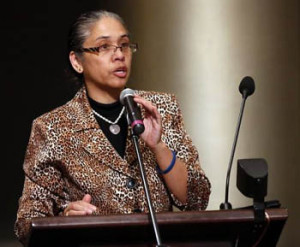 It’s time to face the facts. Alameda County has ceased to be a home for liberals. Perhaps we can trace this development to the replacement of the word “liberal” by the word “progressive,” perhaps to the broken promises of the Obama administration or even to 9/11. Or perhaps the yuppy generation grew old, more afraid, more conservative. In any case, policies throughout the county show that, by in large, liberal values have been abandoned. We now welcome mass surveillance, the loss of fourth amendment rights and the militarization of police, under the fear or excuse of crime, even as crime has plummeted since the 1980’s. We are willing to accept racial profiling by police almost as a fact of life. We pass ordinances prohibiting the feeding of the homeless, the eviction of the poor and even attempt to criminalize people from sitting on the sidewalks. And we elect conservative politicians.
It’s time to face the facts. Alameda County has ceased to be a home for liberals. Perhaps we can trace this development to the replacement of the word “liberal” by the word “progressive,” perhaps to the broken promises of the Obama administration or even to 9/11. Or perhaps the yuppy generation grew old, more afraid, more conservative. In any case, policies throughout the county show that, by in large, liberal values have been abandoned. We now welcome mass surveillance, the loss of fourth amendment rights and the militarization of police, under the fear or excuse of crime, even as crime has plummeted since the 1980’s. We are willing to accept racial profiling by police almost as a fact of life. We pass ordinances prohibiting the feeding of the homeless, the eviction of the poor and even attempt to criminalize people from sitting on the sidewalks. And we elect conservative politicians.
Despite the claims of Democratic operatives and newspapers, this election has been terrible for liberals in Alameda County, at least as far as local governments goes. In most local races, the more progressive candidates lost. When they didn’t, it was because they were well-established incumbents, often facing token opposition, or as part of plurality elections, where multiple candidates split the vote.
Here is a brief analysis of how the City Council races turned out countywide.
Berkeley had three City Council seats up for election. Incumbents Kriss Worthington and Linda Maio won. Worthington faced a more conservative challenger, while Maio was up against a more liberal one. If anything, this was a wash. As for District 8, the political distinctions among the candidates were minor.
In Oakland, Dan Siegel, the only actual liberal candidate for Mayor, did not win the election. Libby Schaaf moved to the left in the latest stages of her campaign, at the same time that she basked in the endorsements of Jerry Brown and Barbara Boxer, who have long abandoned the pretense of being progressive. Early in the year, however, Schaaf was supported the establishment of the Domain Awareness Center, an intelligence fusion center that would allow government officials to better track the movements of regular people. At the start of the election, Schaaf was actually lumped with Joe Tuman and Brian Parker as the most conservative viable candidates in the race.
All the viable candidates for Oakland City Council District 2 were equally progressive, some stronger in one area while weaker in another. In District 6, incumbent Desley Brooks barely beat out a staffer for Libby Schaaf, whom would have likely been more conservative than Brooks. Only in District 4 we see a clear win by a progressive candidate over a conservative one. If there is one bright light on this election, it’s Annie Campbell Washington’s win.
Unfortunately, I did not follow the Emeryville City Council race, so I can’t judge where the candidates fell in the political spectrum, though I can say the two winners had the Democratic endorsement.
Trish Spencer was elected Mayor of Alameda. She is significantly more liberal than incumbent Mary Gilmore, who supported the acquisition of license plate scanners and of an armored personnel carrier for the police, but Spencer ran on an anti-development platform which attracted many conservative votes. Similar issues played out in the City Council race, where just three candidates vied for two seats. The loser was the incumbent member of the Council who had voted to expand development.
In San Leandro, Pauline Cutter, a moderate Democrat was elected Mayor against a more conservative opponent – but the more liberal candidate was left in the dust. The three City Council races saw the most conservative candidates win, all endorsed by the police union.
Results were just as bad in Fremont, where even a moderate Democrat who had the endorsement of the Police, was defeated by two of the most conservative candidates. One is an ex-police officer who openly supports the militarization of the police.
Union City saw its two Democratic incumbent Council members get re-elected, as well as their Republican colleague. Meanwhile in Newark, the Democratic Mayor won re-election against a Democratic opponent, and the two empty City Council seats were split between a Democrat and a Republican
In Pleasanton, the Republican Mayor won re-election and the two City Council seats were filled by Republicans. Dublin Mayor and Assembly candidate Tim Sbranti was replaced by a Republican, though the two Democratic incumbent council members won re-election. Tim Sbranti, by the way, lost the Assembly race to a Republican, the seat had been previously filled by a Democrat.
No Democrats even ran for City Council in Livermore.
The results were much better at the School Board level, but only because the trend was to see parents of students in their respective school districts get elected over non-district parents, regardless of their political views.

